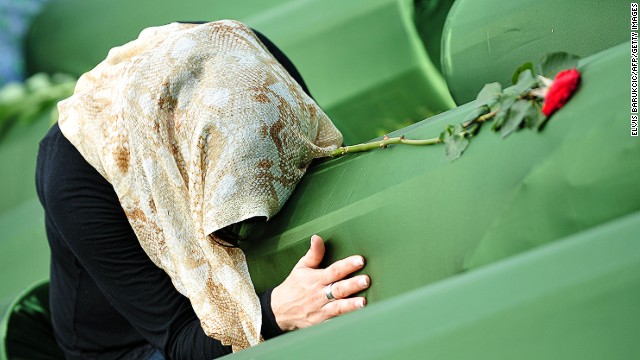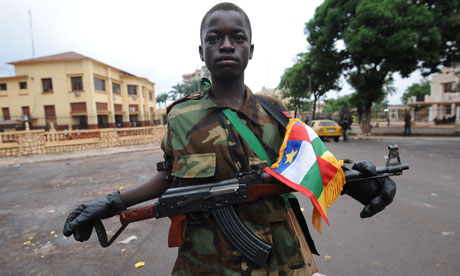By Ben Kopp
Impunity Watch Reporter, Europe
THE HAGUE, Netherlands – The highest Dutch court has declared that the Netherlands must pay compensation to the family of three Muslim men who were executed during the Srebrenica massacre.

On 11 July 1995, Bosnian Serb forces overran an area near a United Nations compound, which a Dutch battalion of U.N. peacekeepers (“Dutchbat”) controlled. Among the thousands who sought shelter at the compound, Dutchbat turned away three Muslim men after Bosnian Serb forces had been witnessed abusing and killing several Muslims outside the safe area of the compound.
In all, 8000 men and boys were killed and buried in mass graves. The atrocity has been called “the worst massacre on European soil since the Second World War.”
Hasan Nuhanovic and Rizo Mustafic, relatives of the three men, filed suit against the Dutch state, which accepts “political responsibility” for the mission’s failure and claims that responsibility for the massacre lays with the Bosnian Serbs. Pending appeal to Holland’s Supreme Court, the Hague appeals court ordered the Dutch to compensate the men’s relatives.
On 6 September 2013, the Dutch Supreme Court issued a final decision that ordered the Netherlands to compensate relatives of those men. In so doing, the decision confirms precedent stating that “countries providing troops to U.N. missions can be held responsible” for the troops’ conduct. Additionally, the decision enables other victims’ families to seek compensation from the Dutch.
The ruling stated that “Dutchbat decided not to evacuate them along with the battalion and instead sent them away from the compound. Outside the compound, they were murdered by the Bosnian-Serb army or related paramilitary groups.”
“People participating in U.N. missions are not always covered by the UN flag,” said Liesbeth Zegveld, the human rights lawyer who represented the Bosnian families. She added that the case is historic because countries can now be held criminally liable for their actions in U.N. missions, despite the U.N.’s immunity from prosecution.
“I was thinking about my family, they are dead for 18 years,” Nuhanovic said. “It does not change that, but maybe there is some justice. It should have happened years ago. In the future countries might act differently in peacekeeping missions and I hope the lives of other people in the future will be saved because this mistake was admitted.”
To preserve justice and human rights around the world, compensation policies should promote and encourage safeguards to protect innocent people who might otherwise be abused or even murdered. Absent the security of such fundamental safety, we will have fought for nothing.
For further information, please see:
Amnesty International – Netherlands Supreme Court Hands Down Historic Judgment over Srebrenica Genocide – September 6, 2013
BBC –Dutch State Liable for Three Srebrenica Deaths – September 6, 2013
CNN International – Netherlands Liable for Deaths of 3 Muslim Men in Bosnia, Court Says – September 6, 2013
Dutch News – Supreme Court Says NL is Responsible for 3 Srebrenica Deaths – September 6, 2013
The Guardian – Netherlands to Pay Compensation over Srebrenica Massacre – September 6, 2013
Reuters – Dutch State Blamed in Three Srebrenica Deaths: Supreme Court – September 6, 2013



